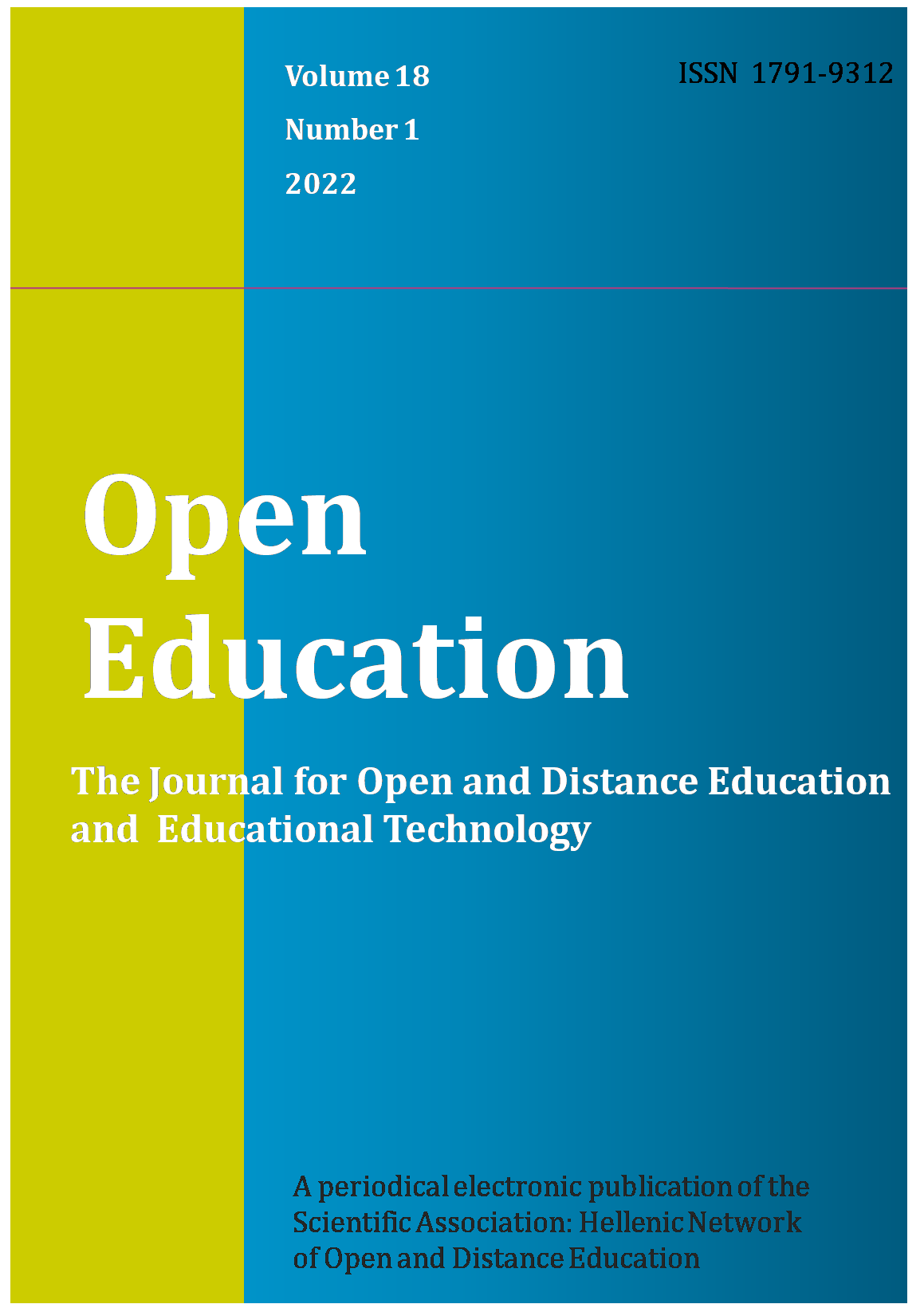Βιντεοπαιχνίδια σοβαρού σκοπού: Περιβάλλοντα γραμματισμού και εκμάθησης λεξιλογίου για την ελληνική ως δεύτερη|ξένη γλώσσα
Resumen
Η πανδημία του ιού Covid-19 έχει επηρεάσει εκατομμύρια ανθρώπους σε παγκόσμιο επίπεδο με τις περισσότερες χώρες να έχουν εφαρμόσει ανα περιόδους περιορισμούς ή ακόμη και απαγορεύσεις στις καθημερινές διακινήσεις των ατόμων. Οι ιδιάζουσες αυτές κοινωνικο-ιστορικές συνθήκες έχουν οδηγήσει στην αύξηση της συμμετοχικότητας των ανθρώπων στα διαδικτυακά περιβάλλοντα. Παράλληλα, οι επίσημοι εκπαιδευτικοί φορείς τουλάχιστον σε ό,τι αφορά την Ελλάδα και την Κύπρο, για πρώτη φορά έχουν εφαρμόσει την εξ αποστάσεως εκπαίδευση σε όλες τις βαθμίδες, χωρίς ωστόσο να απουσιάζουν τα προβλήματα και οι δυσκολίες τόσο σε εργαλειακό όσο και σε λειτουργικό επίπεδο. Σε αυτό το πλαίσιο, στο παρόν άρθρο παρουσιάζονται οι τρόποι με τους οποίους σύγχρονα ψηφιακά περιβάλλοντα γραμματισμού, όπως τα βιντεοπαιχνίδια σοβαρού σκοπού, μπορούν να συμβάλουν στην εξ αποστάσεως εκπαίδευση για την εκμάθηση της ελληνικής ως δεύτερης|ξένης γλώσσας. Συγκεκριμένα, το άρθρο παρουσιάζει την πρώτη έρευνα η οποία εξετάζει πώς ένα ελληνικό βιντεοπαιχνίδι σοβαρού σκοπού, το Einstown, μπορεί να αποτελέσει λειτουργικό περιβάλλον γραμματισμού για την εκμάθηση της ελληνικής ως δεύτερης|ξένης γλώσσας σε ενήλικες. Η μεθοδολογία που υιοθετείται είναι η μελέτη περίπτωσης με ενσωματωμένη σχεδίαση. Οι συμμετέχουσες της έρευνας είναι δύο ενήλικες γυναίκες με μεταναστευτική βιογραφία, που ζουν μόνιμα στην Ελλάδα και οι οποίες δεν είχαν έρθει σε επαφή ξανά με βιντεοπαιχνίδια. Τα αποτελέσματα της έρευνας αναδεικνύουν ότι το βιντεοπαιχνίδι Einstown αποτελεί ένα ψηφιακό περιβάλλον γραμματισμού μέσα από το οποίο αναπτύσσεται η ενεργή μάθηση, οι συμμετέχουσες αναπτύσσουν μεταξύ τους συνεργασία και επιτελούν ψηφιακές και μη ψηφιακές πρακτικές γραμματισμού με αποτέλεσμα την ενίσχυση της εκμάθησης λεξιλογίου που προσφέρει το βιντεοπαιχνίδι κατά την παιγνίδραση.
Article Details
- Cómo citar
-
- Sección
- Μέρος πρώτο / Section 1



